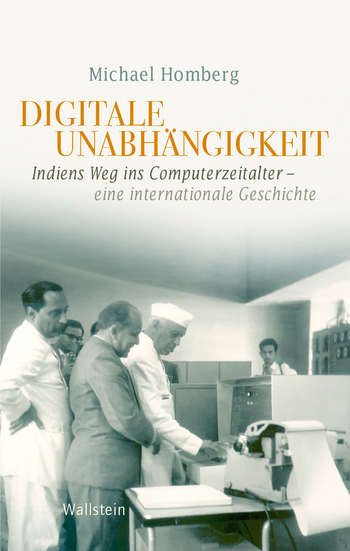Michael Homberg
Completed research project (Habilitation) supported by Alexander von Humboldt-Stiftung and Max Weber-Stiftung (2018-2021)
The first electronic computers arrived in India in the 1950s. Today, Indian programmers embody the interconnectedness of a globalized world. This book examines the long and chequered history of India's journey into the digital age. It shows how the emergence of digital expertise in India was the result of both national efforts and international cooperation. From early on, the computer thus became a symbol of Indian nation-building at the end of the colonial era, a tool of technocratic planning in the period of «high modernism», and an instrument of cultural and power politics, geostrategy, and economic interests. The book interweaves the history of the Indian republic, which celebrated its 75th anniversary in 2022, with an analysis of the country's international, global relations, analyzing the different speeds and intensities of the computerization of the living and working worlds in the Global North and the Global South while equally reconstructing the international networks of technicians, managers and politicians, development experts and activists around the computer in India. Since the early years of the Indian republic, industrialized nations such as the Federal Republic of Germany and Great Britain, as well as the USA and the USSR, promoted the expansion of computer technology and education in India. This study explores the roots of these international technical assistance programs in the Cold War era and the development of its global geopolitics of expertise, the growing desire in the Indian computer industry for «digital independence» in the global IT market since the 1970s and the triumph of elite programmers in Silicon Valley in the early 21st century. It analyzes the preconditions, dynamics, and consequences of global exchange processes in India after 1947, and thus «decenters» the primarily Western perspective of computer history and its master narratives. Drawing on broad (archival) research in India, the USA, and Europe, the study's sources include governmental records, university archival collections, academic literary estates, parliamentary minutes, and contemporary media.
The book is based on the author’s habilitation manuscript, submitted in May 2021 to the University of Potsdam, and has been published in December 2022 in the ZZF publication series "History of the Present" by Wallstein-publishing programme: https://www.wallstein-verlag.de/9783835352674-digitale-unabhaengigkeit…


